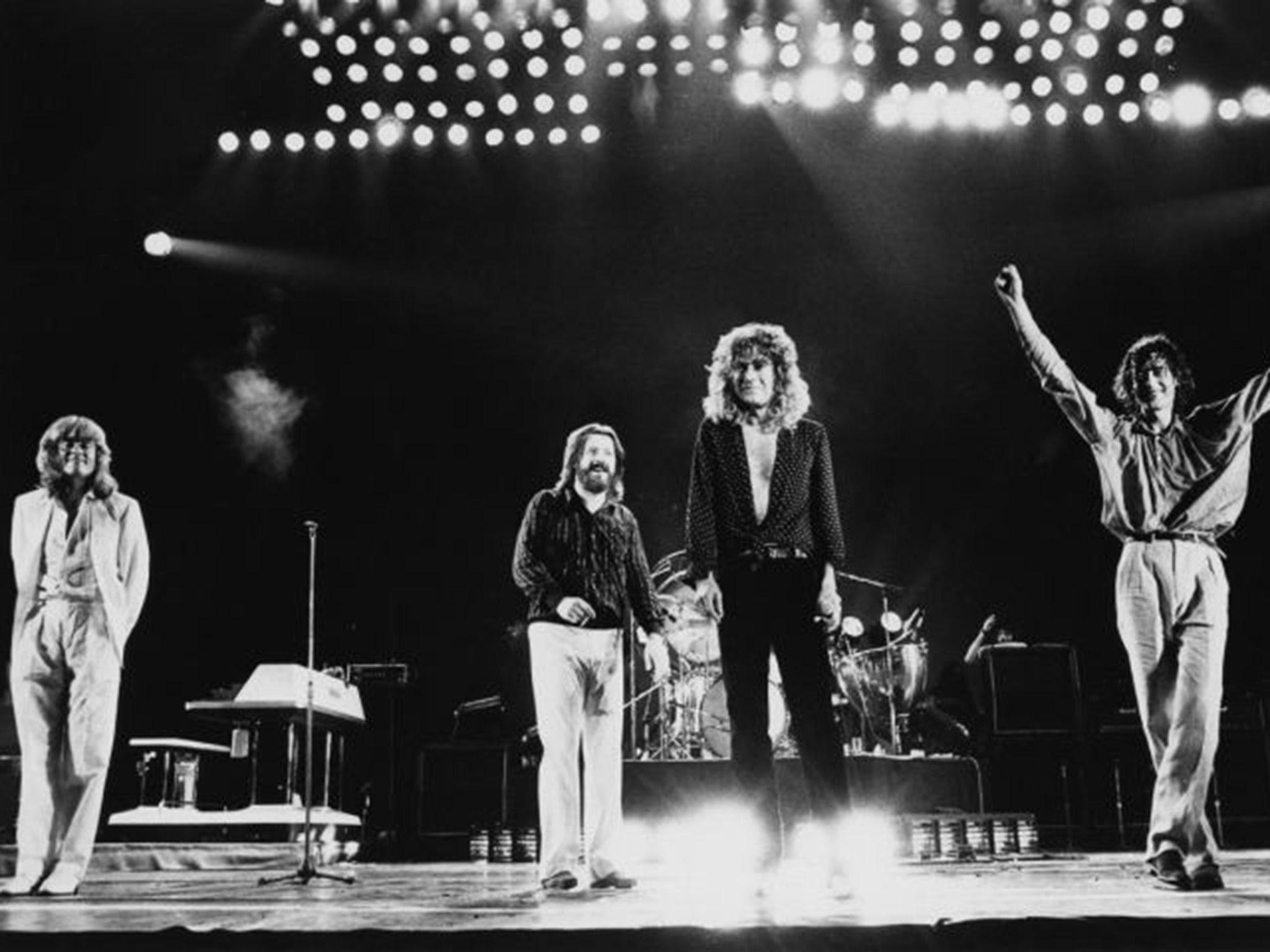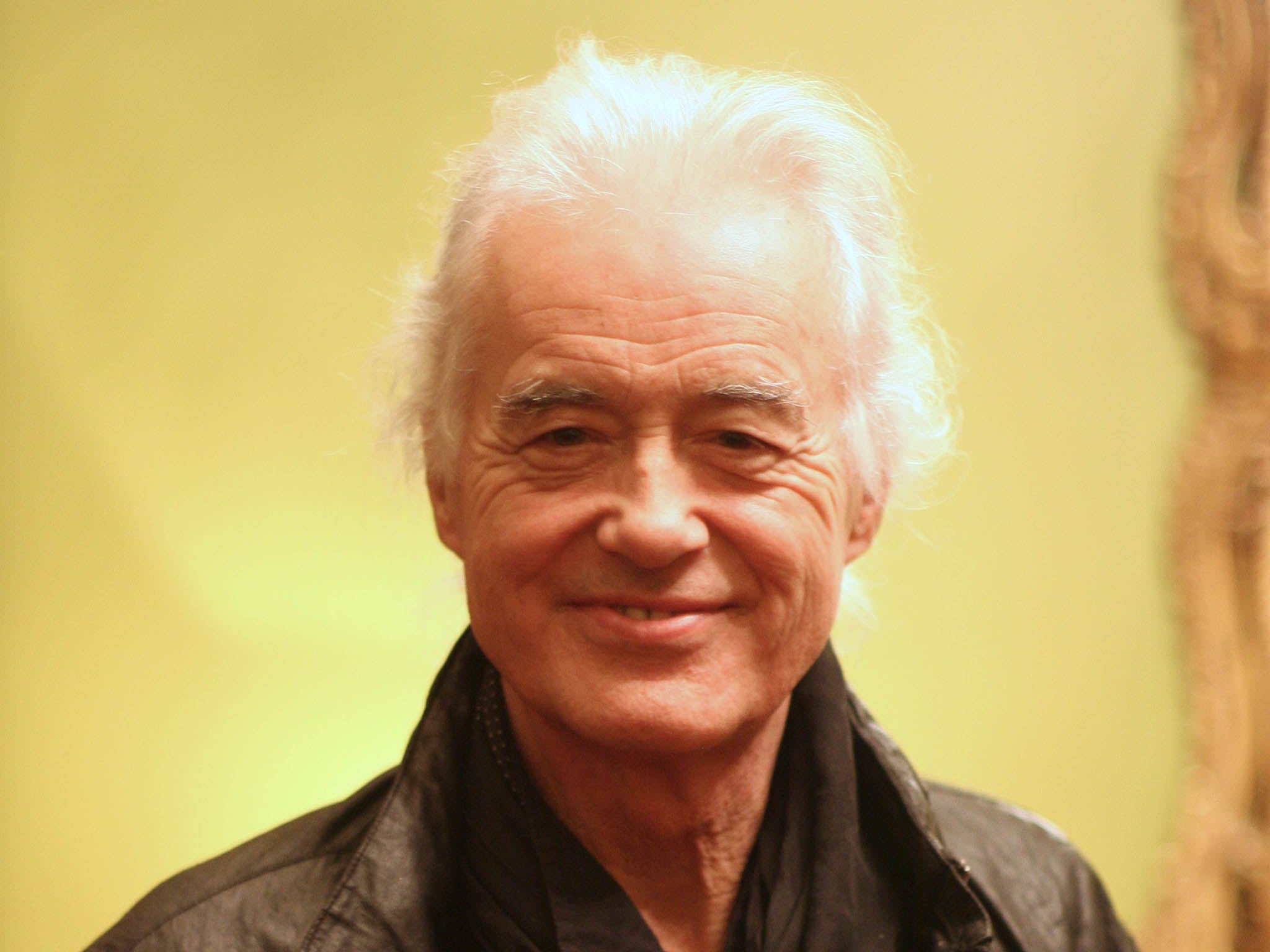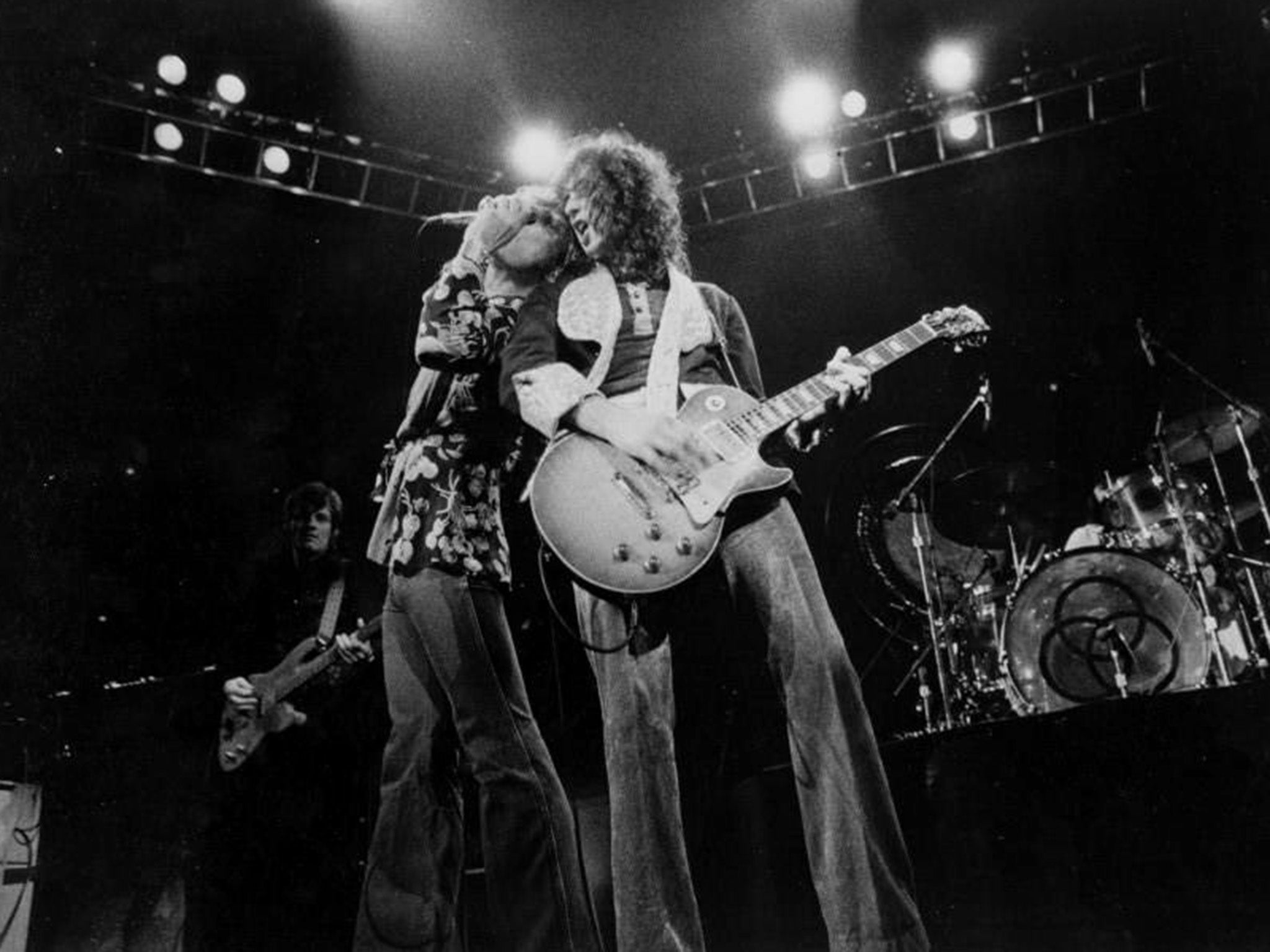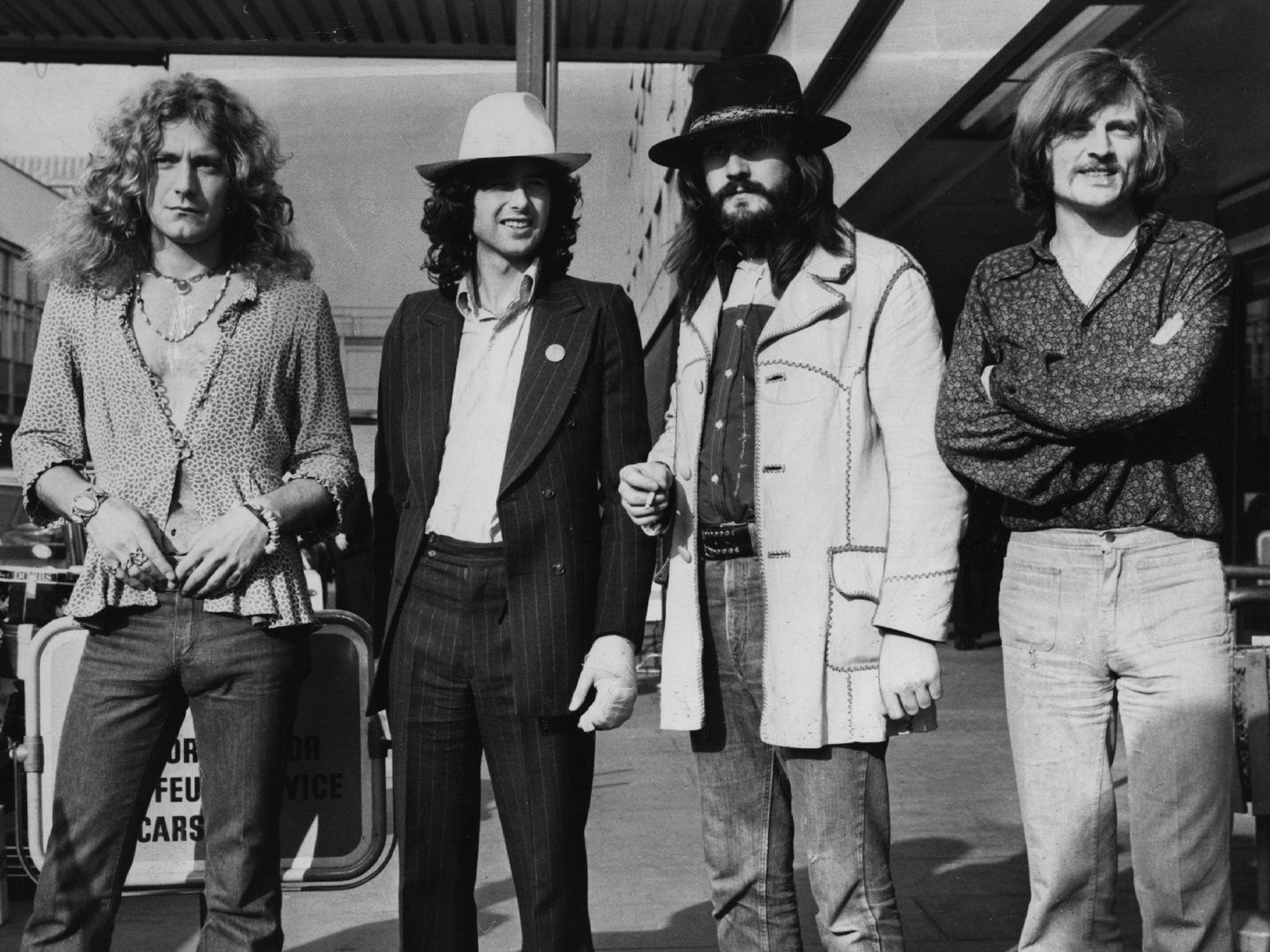Led Zeppelin's Jimmy Page on how band's final remastered works show a Whole Lotta Love for Bollywood
Jimmy Page’s final Led Zeppelin remasterings feature fascinating bonuses – including Zep classics played with Indian virtuosos

Your support helps us to tell the story
From reproductive rights to climate change to Big Tech, The Independent is on the ground when the story is developing. Whether it's investigating the financials of Elon Musk's pro-Trump PAC or producing our latest documentary, 'The A Word', which shines a light on the American women fighting for reproductive rights, we know how important it is to parse out the facts from the messaging.
At such a critical moment in US history, we need reporters on the ground. Your donation allows us to keep sending journalists to speak to both sides of the story.
The Independent is trusted by Americans across the entire political spectrum. And unlike many other quality news outlets, we choose not to lock Americans out of our reporting and analysis with paywalls. We believe quality journalism should be available to everyone, paid for by those who can afford it.
Your support makes all the difference.In 1972, Led Zeppelin guitarist Jimmy Page came up with a master-plan but failed to execute it. “In those days, when you went to Australia, it wasn’t a direct flight. You’d be stopping off in all these cities on the way,” recalls the musician. “I saw a way that, maybe, we could go to Cairo with Led Zeppelin. We could record with an orchestra there. And we could then play the cricket ground in Bombay, and also record in India. And then continue on to Australia. It was a great idea. The only thing was there was no infrastructure to do this sort of thing,” muses Page, 71, who first travelled down under and then on to India in 1967 after joining The Yardbirds, the British beat group that also gave the world guitar heroes Eric Clapton and Jeff Beck. “Out of all the popular groups that followed us, the first one to play in Egypt and India was The Police in 1980, years after that. But that was just an idea I had, you know, you try things out,” he says.
Harmonically, melodically and psychologically, the Middle East and South Asia regions held a special fascination for many musicians who first came to prominence in the Sixties. The Grateful Dead played three concerts near the Sphinx and the Great Pyramid in Giza, Egypt, in September 1978, while a decade earlier The Beatles and Donovan spent several weeks in Rishikesh, northern India, practising Transcendental Meditation at the ashram of Maharishi Mahesh Yogi.

Indeed, George Harrison and Brian Jones of the Rolling Stones introduced the sitar and the tanpura to the pop canon in the mid-Sixties, but Page and his bandmate, the lead vocalist Robert Plant, might just have a bigger claim to fame as pioneers of what would eventually become known as world music. In October 1972, the pair stopped off in Bombay on the way back from Led Zeppelin’s second Japanese tour. One thing led to another and, before you knew it, they had left the Taj hotel and were jamming with a bunch of local musicians at a dingy bar, the Slip Disc. Sadly, no one recorded the impromptu hour-long session that followed or Page would have made sure he owned a copy and considered it for inclusion on one of the companion discs he’s been curating while bringing the mighty Led Zeppelin catalogue up to 21st-century standards.
However, the guitarist has done the next best thing and unearthed striking new studio versions of the Led Zeppelin classics “Friends” and “Four Sticks” that he and Plant recorded with the Bombay Orchestra in 1972. “They were the musicians who supplied Indian pop music, film music for Bollywood, the equivalent of what I used to be in the Sixties, when I was a session musician,” says the veteran whose guitar parts bolstered early hit singles by The Kinks, The Who and Lulu.

“I thought it would be a really fascinating project to go into a Bombay studio, not have a musical arranger, and request instruments such as the sarangi, the mridangam, the tabla drums and violins. I just knew that it would work and it did work. Robert and I just went over with the acoustic guitar and pulled it together over the course of an evening. Once “Friends” was done, I wasn’t going to leave it there,” he insists. “The whole thing was really happening. We also had a crack at the equivalent of “Four Sticks” because the percussion was just so thrilling. These were the two things that really came out of the recording that night.
“At the time, it wasn’t appropriate to put this into Led Zeppelin. It was 1972 and we were still into the fourth album. Houses of the Holy hadn’t come out at that point. Now is a great time to be able to present that stuff,” says Page about the brace of tracks that bolster Coda, the 1982 collection of out-takes now generously expanded with two companion discs, a surprising move considering what preceded.
Over the last year, with the appearance of each successive tranche of reissues, the guitarist has treated the media to specifically-curated playbacks held at Olympic Cinema, formerly the London recording studio where Led Zeppelin, the Rolling Stones, The Who, the Jimi Hendrix Experience and Queen made some of their classic albums. Each time, the black-clad guitarist kept his cards close to his chest. But unveiling the latest and last batch, including Presence from 1976 and In Through the Out Door, he seems relaxed.
“It’s jubilation. You have to understand, I have been working on this for a long time. To visualise a project like this, with all the substantial box-sets and companion discs, there were hundreds of hours of listening to set all this up, it wasn’t just another band putting out their material with a few bonus tracks. It was something that addressed all the formats of listening,” he explains. “I’m just really thrilled because for the people who like Led Zeppelin, there is now twice as much information as there was before and it’s really good quality. As far as I’m concerned, I’ve done my job here.”

Long-standing fans will be delighted to discover “Pod”, a reflective John Paul Jones instrumental piece, included on the Presence companion disc. “It’s chalk and cheese to anything else that’s going on. Presence had a real intensity and was shaping up as a guitar album with epic tracks like ‘Achilles Last Stand’. It’s dark,” reflects Page about Led Zeppelin’s last great gallop and the contrasting atmosphere “Pod” introduces into the narrative.
Enjoy unlimited access to 100 million ad-free songs and podcasts with Amazon Music
Sign up now for a 30-day free trial
Enjoy unlimited access to 100 million ad-free songs and podcasts with Amazon Music
Sign up now for a 30-day free trial
“John Paul Jones had got a Yamaha GX-1, the Dream Machine, as Stevie Wonder called it, a real state-of-the-art synthesiser keyboard. He was quite inspired by this instrument. “Pod” is really superb. I must say, when the tape turned up, it was such a surprise, [it was] one that the rest of the band didn’t really remember so much and it’s a real thrill that we can share it now. It’s cool. I like that, I like to present surprises.”
Similarly, an alternative version of “Bonzo’s Montreux”, recorded at Mountain Studios in Switzerland, and added to Coda, highlights the invaluable contribution the late drummer John Bonham made to Led Zeppelin’s all-conquering sound. “It was just myself and John, we’d spoken about doing something like this, a complete drum orchestra and of course he could do that. The important thing was to have the tunings of the drums so you could hear all the notes and it becomes a very musical piece. It was done on a 24-track. In 1982, I’d approached it in a very tentative way because it wasn’t that long after we’d lost John. It still felt like he was with us,” says the guitarist about his bandmate, who died in September 1980 after drinking more than a litre of vodka in 24 hours and choking on his own vomit.
The addition of two companion discs has certainly transformed Coda from an afterthought to a pivotal part of the Led Zeppelin catalogue, even if some will cringe when hearing the simplistic, blues-rock wail of “Sugar Mama”, shelved at the time. “We did it for the first album right here in this room all those years ago in 1968. We did return here many times of course. Coda is now a real celebration of everything, the group, everybody’s playing. On “St Tristan’s Sword”, we had fun in the studio. It’s just bass, drums and guitar. No overdubs. It’s just really good to hear how we lock in,” argues Page, whose inspired curatorship has introduced the band to new generations of listeners. “It’s been apparent for many years, before this, going back decades really, that young musicians come to Led Zeppelin because it’s such a rich textbook of music. I know what it means, that the baton is passed on.”
Led Zeppelin’s ‘Presence’, ‘In Through the Out Door’, and ‘Coda’ Deluxe Editions will be released on Swan Song/Atlantic/Warners on 31 July
Join our commenting forum
Join thought-provoking conversations, follow other Independent readers and see their replies
Comments